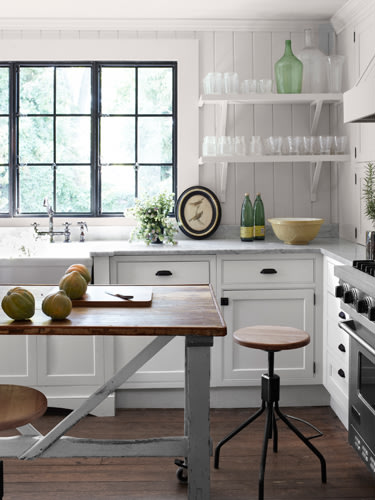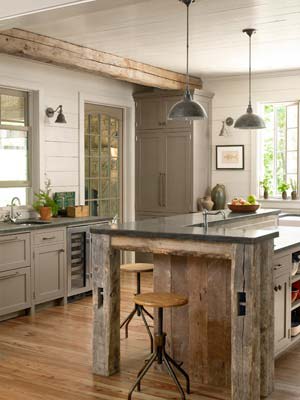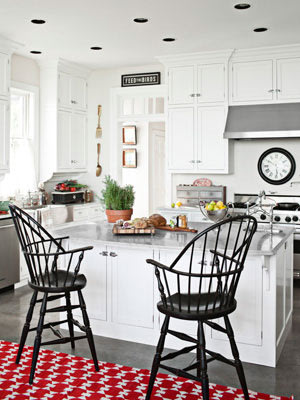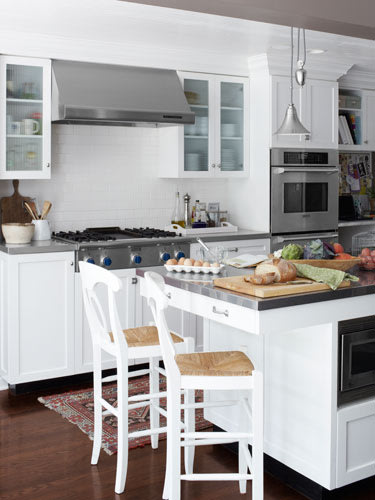It wasn't so long ago that when an intruder broke into a home, the home security system would sound an alarm. If it was a monitored system, the central station
would call the police to report the intrusion. This assumes, of course,
that you armed the system, the batteries were still good and the
intruder wasn't quick enough to disable the system before it sounded the
alarm or dialed the central station.
The revolution brought on by wireless technologies, smart phones, and mobile apps have changed all of that. Today,
home security systems
can still sound alarms, but are much more difficult to forget about or
foil. A software-supported security system can send you a text message
every time a door or window is opened, whether you've armed it or not.
It can stream live video or send still images of what's happening in
your
garage, living room, backyard or wherever you deploy a
security camera. You can even be alerted before the break-in, the moment the burglar pulls into the driveway!
And
that's not all. Home security has teamed up with home automation so the
same interactive service can give your home the appearance that someone
is home. Lights, TVs and radios can be turned on and off at random
intervals, or according to the schedule you choose. Even motorized
blinds can be raised or lowered upon your command.
The Mighty Mule wireless driveway alarm.Home
security systems
can give you peace of mind in other ways, too. Whether you're home or
away, they can inform you of hazards like fire, elevated carbon monoxide
levels, and power outages. They can alert you if someone is tampering
with a safe, a locked tool chest, or a medicine or gun cabinet. You
might even use it to check on the safe arrival of a child returning home
from school. Or, if you lose sleep wondering whether the
water heater is flooding your basement, you can have your system set up to alert you of that as well.
With interactive systems
come other benefits as well. Prefer not to hand out house keys to
housekeepers, or other service providers? You can unlock a door for them
from wherever you are, whether you're at work or on a trip, with
systems such as Kwikset's SmartCode.
You can also use the system to program your home's temperature so you don't
waste energy
heating or cooling your home unnecessarily. During cool seasons, it can
automatically lower settings when you're sleeping or away—and raise
them just before you wake or return home.
BUILDING A SECURITY SYSTEM Smart systems
consist of hardware that doesn't look a lot different than it did
twenty-five years ago. There are some specialized sensors and video
cameras that weren't common in the past and window and door contact
switches have gotten a lot smaller, but the basics are the same: a
control panel or console, magnetic contact switches, motion sensors, a
siren. The new systems may also be connected to central monitoring
stations, as do many old-style
security systems. The big difference, however, is the degree of interactivity. New software platforms, such as alarm.com and
iControl
(pictured below) allow you to send commands, program home systems, view
surveillance video, and receive alerts on a smart phone or
computer—whether you're at home or away.
 I Control Open Home Software Control Panel
I Control Open Home Software Control Panel
When
shopping for a system, review software platforms first. Alarm.com and
iControl are the two biggest. The former has partnered with more than
2,500 dealers and the latter with ADT and Comcast. Among other things,
you'll have to decide between a "cellular primary" or "broadband
primary" system. The former is a wireless connection to the monitoring
station, making it immune to power outages or someone cutting a cable.
It is limited, however, with regard to transmitting large quantities of
video, so many cellular primary systems incorporate broadband for video.
Broadband primary services, on the other hand, have cables running down
the side of a house that can be cut, thereby disabling the system. Some
services offer cellular back-up should this occur.
Be sure to choose a reputable dealer; one that will sell you the
equipment as well as a monitoring plan. Many dealers will install the
system for you, but there are others that sell equipment and services
for the do-it-yourselfer.
Frontpoint Security,
a national provider based in Virginia, for example, offers a GE-branded
system, the Simon XT, that can easily be installed by the homeowner
(along with alarm.com features, and a third party monitoring plan).
Installing the system yourself can save you several hundred dollars and
make you more knowledgeable about how it works.
Smart home security systems
do not restrict the type of security hardware you use, although a
dealer may limit your choices. The inside-the-house components may
connect by wire (known as hardwired) or via radio frequency (wireless)
or RF radiation. While hardwired components were considered the
standard because they are more difficult to disable and don't rely on
batteries for power, the reliability gap has narrowed—or even
disappeared—with new technology.
Alarm.com
and its partners, for example, offer "smash and bash" protection for
wireless home security systems. As soon as a point of entry is breached,
the central station
is immediately sent a pending alarm signal. It doesn't wait to find out
if the person who entered is you or a bad guy. If the system is not
disarmed within the programmed amount of time, the alarm is treated as
an intrusion. In this way, a smashed controller won't stop the central
station from calling the police.
A
conventional system, on the other hand, does not send a signal for a
period of time (typically 30 seconds while it allows time the homeowner
to tap in a code and then more time for the dialer to call the
monitoring station). It doesn't sound like much time but for a smart
burglar, it can be enough to disable the security system or to grab a purse or valuable and run.
Wireless
hardware is, of course, much easier to install than wired components,
making it more appealing to do-it-yourself homeowners. You can also take
it with you should you move.

Look
for a home security system with a full line of wireless peripherals,
including modules for controlling lights and appliances,
thermostats,
cameras, motion sensors (some can distinguish between a pet and a
person), water sensors, and glass break and vibration sensors. Look for
long-life battery power, too. Lithium sensor batteries, for example, can
last three to five years. When they do run low, the system lets you
know well in advance. Choose a controller with back-up battery so the
system will stay active in the event of a power outage or if the
Internet is down. If you will be installing smoke alarms you'll need the
extra power of a 24-hour battery back-up, not the 4-hour back-up
offered by many manufacturers.
Smart systems all require a subscription to a third-party alarm monitoring service. Ask about which central station will be handling your account and be sure that it is UL certified.
THE COST FOR SECURITY
There
are two costs to keep in mind when shopping for a home security system.
The first is for the equipment and the installation, if you're having
it done by a professional. It can run from a few hundred dollars for a
basic installation (or less that half of that if you install it
yourself) to north of $1000 for a full-feature system with specialized
sensors and wireless smoke and CO detectors. The second is the monthly
service charge that includes fees for software-driven features and
central station monitoring. It typically ranges between $35 and $60 per
month. Some dealers, much like mobile phone and cable TV companies, will
reduce the installation cost in return for a multi-year contract.
 LOW-TECH, LOW-COST ALTERNATIVES
LOW-TECH, LOW-COST ALTERNATIVES Burglaries
have been dropping steadily for 20 years in the US, according to the
FBI, but that's small consolation to the roughly 2 million victims of
break-ins every year. To avoid becoming part of this statistic, there
are a number of things you can do to make your home less vulnerable to
theft. They begin with relatively low-cost improvements and common-sense
practices. This is where to make your initial investment in
home security.
1. Install window and door shades that make it difficult to see if someone is home
2. Upgrade locks on all doors and windows—and use them!
3. Put interior lights, TV and radio on timers so you can create the illusion that someone is home when you're out.
4.
Install motion-controlled or infrared-controlled outdoor lighting.
There is nothing more suspicious than a porch light left on from dusk to
dawn over a long period of time.
5. Prune or replace large
foundation plantings so intruders cannot hide behind shrubs while prying
open a window or door. Low thorny bushes are also a deterrent.
6.
Form or join a block watch group. Such groups are effective crime
deterrents because they encourage residents to be vigilant and to call
the police whenever they see something amiss. They also exchange
information about crime in your neighborhood and work with police to
improve response times.
7.
Don't forget about garages and sheds. Always keep garage doors closed,
even while at home, so thieves are not able to spot items they may want
to steal. Lock valuable items, such as expensive bicycles and grills, to
a very heavy object with a chain and pad lock. Drill holes in garage door tracks and insert a padlock or bolt, to prevent the door from being forced open. Install a hasp and padlock on shed doors.
8.
Change the greeting on your answering machine so it doesn't indicate
whether you are away or not. Never leave a note on the door indicating
you are away.
9. Keep car doors locked and windows closed. Never
leave valuables, especially electronics or money, in the car. Or, if you
must, put them out of sight. Use a locking device on your steering
wheel in high-crime areas.
10.
When engaged in a home improvement project, do not leave ladders in
sight. They are an invitation to burglars. Similarly, don't leave tools
lying about that might be useful to an intruder, such as hammer or pry
bar.
Thank you for visiting our REMAX REALTY CENTER, Real Estate in Wisconsin website.
The RE/MAX Realty Center Office, has
experienced agents with expertise in luxury home marketing, lake
property experts, foreclosure and short sale specialists, investment and
property management brokers and commercial brokers.
Our agents areas of service include, but are not limited to:
The prospering communities of Waukesha County including Delafield, Waukesha, Oconomowoc, Pewaukee, Waukesha, Sussex, Wales, New Berlin, Dousman, North Prairie, Mukwonago, Chenequa, Menomonee Falls, Brookfield, Elm Grove, Okauchee, Eagle, Muskego and Merton.
Great municipalities in Milwaukee County including Milwaukee, South Milwaukee, Wauwatosa, Hales Corners, Greenfield, Glendale, Franklin, Bayside, Brown Deer, Cudahy, Fox Point, Greendale, Shorewood, Oak Creek, St. Francis, West Allis and Whitefish Bay.
The hometown favorites of Washington County, Jefferson County and Dodge County including Watertown, Hartford, West Bend, Germantown, Jackson, Richfield, Ashippun, Lake Mills, Jefferson, Johnson Creek, Slinger and Erin.
If lake living is what you desire then Lake Country is the place to be! If you are thinking about buying waterfront property in Wisconsin,
a little time invested in learning about waterfront living will pay
back sizeable dividends in matching your expectations to realities.
Lake Country Living on one of Waukesha Countys great lakes as a full timer or vacationer is a must and there are some great lakes to choose. Nagawicka Lake, Pine Lake, Oconomowoc Lake, Beaver Lake, Okauchee Lake, Pewaukee Lake, Moose Lake, North Lake, Lake Keesus, Lac La Belle, Upper Nashotah, Lower Nashotah, Upper Genesee, Lowe Genesee, Middle Genesee, Upper Nemahbin, Lower Nemahbin, Fowler Lake, Golden Lake, Pretty Lake, Silver Lake, Waterville Lake, and Crooked Lake. Great lakes of the surrounding area also include Lake Michigan, Rock Lake, Big Cedar Lake, Little Cedar Lake, Pike Lake and Lake Ripley.
Your home purchase or sale is likely your largest investment, be sure you have an good agent you can trust! Real Estate in Wisconsin is an excellent investment, prices are superb, selection is great and rates are outstanding!!!
Ask us about our preferred vendors -- from lenders to help you finance your new purchase to contractors to help maintain!


















